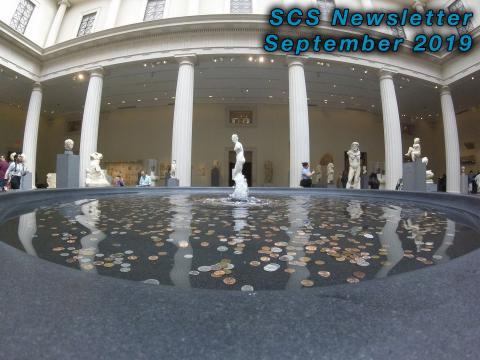When I agreed to run for the SCS Program Committee, several friends volunteered that I had made a terrible mistake. I heard varieties of the question “Why on earth would you want to do that?” and was advised that I should have simply said “no” when I was approached by the Nominations Committee.
A lot of the academic advice out there is about the prudence of saying “no” to service requests. In a lot of cases that’s good advice: when you’re junior, when you’re not the right person for the job, when you’re already over-asked to commit to service (and emotional labor) because you belong to a group historically underrepresented in academia. Here my advice to “say yes” is not directed at anyone who finds themself in those circumstances. Instead, I am speaking to people who enjoy the privileged position of job security, and who have a tiny bit of time to spare. I’m also speaking to people who have an interest and stake in the SCS becoming a better organization. I do realize that there are few people who tick all three of those boxes.
I agreed to run for the Program Committee precisely, and only, because I meet all of these criteria. And given that I regularly both attend the January meetings and complain about them, I decided that it would be hypocritical to refuse an opportunity to do what I could to improve them.
I’ve only been on the committee now since January, and I’m actually very glad that I agreed to run for this position. Here is what I have learned so far:
- Everything, of course, about how the SCS meetings are structured and run could, theoretically, be changed. Now I have a much better handle on how those things can be changed, i.e. on what level (whether the general membership, the Program Committee, the Trustees, the SCS staff).
- The Program Committee takes its remit extremely seriously. We meet for two full days in June at the SCS’s New York headquarters in order to set the program, but a huge amount of time goes into reading abstract and panel submissions in advance. Committee members read the abstracts so carefully that they even double-check individual references (I remember one colleague arguing: “I looked up all the passages the author cites, and I thought they were misrepresented in the abstract”). Every single abstract or panel which does not receive a clear “yes” or “no” in the first rounds of (remote, digital voting) is discussed, sometimes at length, by the entire committee. Whether you agree with the results, nothing about the process is thoughtless or casual.
- Colleagues, even those I would call “super senior” colleagues (the generation of classicists that I, personally, always associated with SCS leadership), are committed to diversifying the field and making it more inclusive. They recognize past mistakes and want to do better. But they sometimes feel out of touch about what steps to take, and they are truly curious and grateful to hear advice and ideas from more junior colleagues.
- Being on (at least) the Program Committee is weirdly fun. The same friends who discouraged me from running for it could hardly believe how much I enjoyed the June meeting. Here’s one of the reasons: the SCS is different from many other professional societies (such as the American Political Science Association) in that it considers the individual merits of each abstract submission. So, an abstract on Thucydides won’t be rejected simply because there aren’t enough other abstracts to form an entire Thucydides panel. One of the last major orders of business at the Program Committee meeting is the crafting of the program. The SCS staff lay out paper copies on tables of each accepted individual abstract, and members of the committee are tasked with assembling thematic panels by picking up and bundling the sheets of paper. There is swapping and negotiating, and colleagues get a little competitive. The whole thing had a bit of a game-show feel to it, and was a surprisingly entertaining community-building exercise.
In her wonderful “Managing academic workloads” blog post for the Women’s Classical Committee, Prof. Helen Lovatt shares this rule of thumb:
“Membership of committees/national bodies: only one active role … and I would again aim for a break between stints.”
For the sake of the future of this field, which is currently in the midst of a seriously long-overdue reckoning, I hope that more “mid-career” classicists—those who regularly attend the SCS annual meetings, read the blog, submit books to be considered for the Goodwin, nominate students for the Pearson, etc.—will make the reasonable contribution of seeking “one active role” in the society’s governance. There is, however, surely also wisdom to Lovatt’s advice about “a break between stints.”
---
For those interested in volunteering for an SCS position, here's a rundown of open offices and relevant materials.
More September 2019 Newsletter Content
See the highlights from SCS Intern Céili Lynch's favorite TAPA articles.
Learn about the new AIA/SCS Joint Harassment Policy for the annual meeting.
Join us in congratulating the 2019 SCS Elected Officials.
Photo credits for the September 2019 Newsletter

